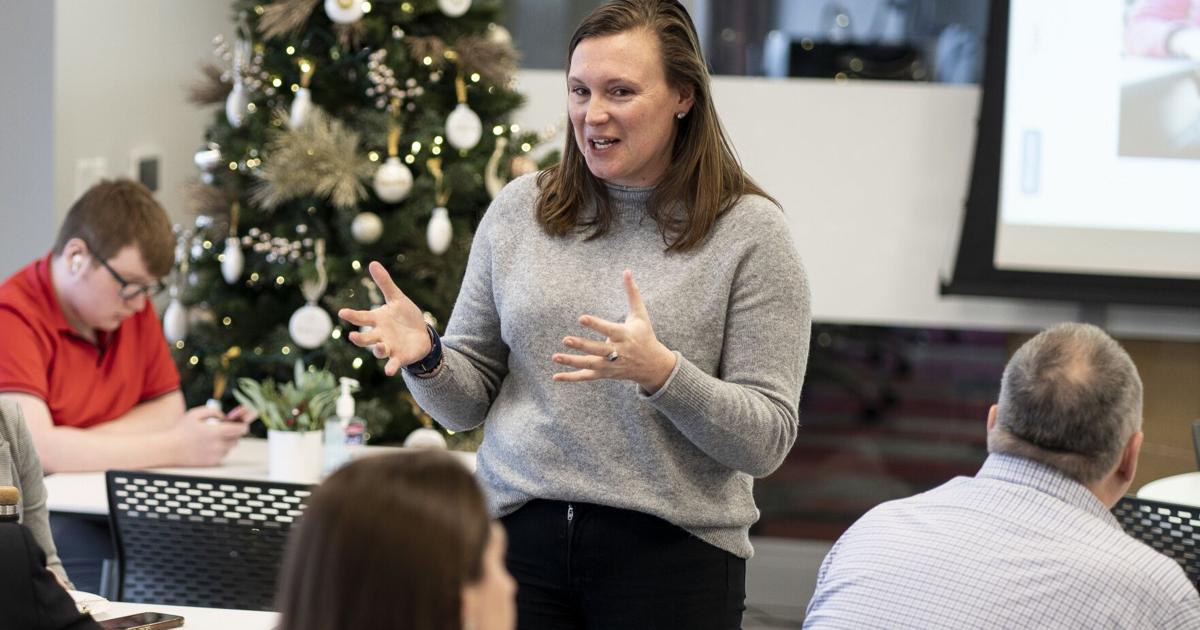Entrepreneurs get younger and even more willing to take risk

Modern day startups are bringing new life to the age-old concept of entrepreneurship.
Being an entrepreneur in Buffalo these days has completely changed, said Eric Reich, who has been in those shoes himself, having built a successful startup Campus Labs more than two decades ago.
The increased number of support organizations, mentors and coaches, and availability of investment capital, as well as the increased exposure to entrepreneurship as a career path, is igniting people’s passion for founding or being part of a startup or tech company in Western New York.
And thanks to the success of programs like startup accelerator and incubator 43North, which grew out of the Buffalo Billion a decade ago, founders are getting younger and they are not only willing to take risks but have become increasingly enthusiastic about it.
People are also reading…
“I’m a bit envious, to be honest, because I wish these things would have been around years ago,” said Reich, now a startup investor who is a 43North board member.
“It would have been much easier to build Campus Labs with all these resources today than it was then,” Reich said. “There’s a bunch of stuff that’s been added to the ecosystem that’s been beneficial, but people are now also thinking about entrepreneurship differently.”
Entrepreneurial activity in the area for years was stagnant, prompting the state and region to reignite that spark through the creation of 43North and its efforts to build a startup ecosystem.
It’s not only helped change the perception of startups, but who pursues becoming an entrepreneur. Inspired by companies like Facebook, Google, Uber, Expedia and Pinterest and the show “Shark Tank,” it’s become somewhat in vogue to be an entrepreneur.
“My life has been very blessed and I’ve also tried a lot of crazy things,” said Daricus Releford, founder of Storecash, one of five winners of the 43North competition in 2023, who started his first business at age 12. “It can be very scary and a little stressful but … I drive off doing things people say I can’t do.”
Adam Duke and Tabitha Raithel work in the Twipes office at 43North.
Success is inspirational
ACV Auctions, a Buffalo homegrown past 43North winner that grew into a “unicorn” and is now valued at more than $3 billion, has also inspired the next generation of entrepreneurs attempting to follow in its footsteps.
“When I think about when I was in school, we didn’t talk about this,” said Colleen Heidinger, executive director of 43North. “But because of some of the wins, people having their lives changed by technology and others becoming more comfortable with engaging with technology in meaningful ways, there’s been a mindset shift to accepting entrepreneurship as a viable career path.”
When Buffalo attorney Matthew Pelkey started practicing law 13 years ago, the startup ecosystem in Buffalo was a small one, he said. But that’s when state and local government began realizing that more returns and job creation would come from investing in startups than providing tax breaks for silver bullet-type projects.
“Where there used to be a cultural resistance to entrepreneurship, now there’s an acceptance of it and people understand it more and are more willing to take that risk,” said Pelkey, who works with startups as part of his practice with Colligan Law Firm. “And they’re excited about it.”
Government dollars, along with grants and some private funds, have helped to build a robust support network for startups.
More help is available
While 43North raised the profile for Buffalo, bringing a handful of promising companies to the area each year, other entities have also been a big help.

Senior talent manager Carly Ortiz, left, and Meaghan Phelps, director of finance and operations, center, chat with Ca-rin Miles, incubator manager, at 43North in Buffalo on Jan. 9, 2024.
LaunchNY now has 90 companies in its portfolio and invested around $5 million over the past decade. The University at Buffalo has stepped up in many ways to help startups, most namely through its Cultivator program that provides money, guidance and mentorship to growing startups.
The WNY Impact Investment Fund has raised $20 million in funding for startups since 2017. Buffalo Angels is a group of high net-worth individuals who have invested about $8.5 million in nearly 50 companies over a decade. And volunteer-driven nonprofit Bootsector is now hosting Buffalo Startup Week and Tuesday morning coffee meetups.
“At the end of the day, it is still business,” said Jack McGowan, director of Buffalo Angels, who’s been involved in business development and funding for 30 years. “You still have to do the basic stuff – find a need in the marketplace, develop a product or service that fits the need, get the word out to your customers and then be able to deliver and make money. That stuff doesn’t go away.”
But it does come with a longer list of to-dos for new entrepreneurs to consider and a need for them to be even more nimble, according to Marnie LaVigne, president and CEO of LaunchNY.
Nowadays, with a broader playing field, starting a business is more complex than just making a budget and getting a loan. Pre-emptively performing customer discovery has become essential in understanding if the demand for a product or service is there and if the business will be scalable, LaVigne said.
With e-commerce, founders also need to figure out how to sell products, not just locally, but nationally and potentially around the globe, she added.
“Entrepreneurs get very excited about their idea and they’re often off to the races without necessarily considering a number of items,” LaVigne said. “But with what technology has done for business, suddenly the type of business you could pursue and imagine is much bigger than it used to be.”

Cydney Sanders, marketing and outreach lead at Tech Buffalo, left, and Rachel Eastlack, community impact lead, discuss plans at 43North.
Becoming more diverse
These days, it is not uncommon for people to start their entrepreneurial journey as a student, with more business concepts being taught at the K-12 level and many universities providing exposure and encouragement to being part of the startup community.
A recent Harvard University study shows that the average age of successful startup founders is between 35 and 45.
There’s also an effort to increase inclusivity through more programs and funding opportunities focused on underserved communities. It has opened up opportunities for founders from all walks of life.
“These founders are worthy of support to help grow these companies and kind of lift the economic benefits in the broader community,” McGowan said. “That’s important for us in the ecosystem.”
Economic downturns tend to spawn more business starts as people look at alternatives to working for someone else in a job they’re not happy with, LaVigne said.
“This community has really woken up to the idea,” Lavigne said. “People still worry about what happens if the business fails, but I think we are breaking down that barrier and encouraging entrepreneurs to give it a try.”
It’s also not as expensive and quicker to launch and build a profitable startup these days. With the advent of tech software, a product can be designed and created online.
Heidinger is seeing people leaving what most would consider comfortable jobs with big companies to come work for startups.
“As a community, we’ve come together to embrace and be inspired by what the startup ecosystem is doing and how everyone can get involved,” she said.
Five years ago, the UB Law Entrepreneurship Center had 10 to 15 clients it worked with per semester, but the demand for services has steadily increased and the center is now helping over 300 clients at a time, said Pelkey, the center’s program director.
“You can support, foster and encourage that, but you can’t force people to take the risk,” said Pelkey, who added it still requires a “bootstrapping” attitude to become an entrepreneur.
The business news you need
Get the latest local business news delivered FREE to your inbox weekly.



